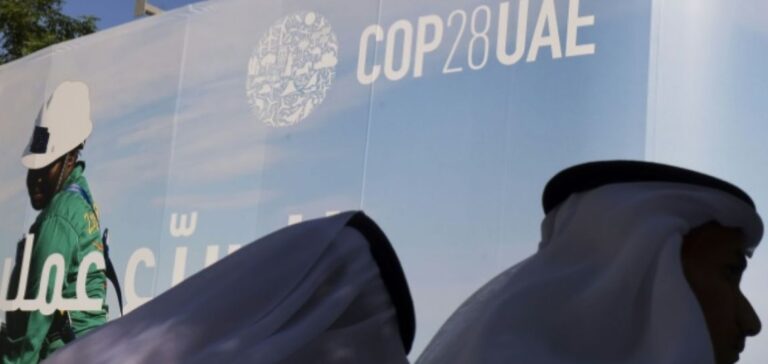COP28, which opened in Dubai, is taking place against a backdrop of unprecedented climate challenges. At the heart of the discussions was the issue of fossil fuels and the setting up of a fund for vulnerable countries. The conference brings together delegates from nearly 200 countries, transforming Dubai into a hub of climate diplomacy. It is in line with global efforts to address the devastating impacts of climate change.
Fossil fuels at the center of debate
COP28 President Sultan Al Jaber emphasized the role of fossil fuels in climate change. This stance comes at a time when fossil fuels remain a controversial issue. Al Jaber, who also heads the national oil company Adnoc, has encouraged frank discussion on the subject, despite the criticism and tension surrounding the promotion of Adnoc’s projects.
Compensation Fund: A Crucial Step Forward
One of the most eagerly-awaited moments of COP28 was the creation of a fund to compensate for climate loss and damage. After tense negotiations, the hope is that this fund will provide tangible support to the communities most affected by the effects of climate change. The World Bank will play a key role in hosting this fund, with high expectations in terms of financial contributions from developed countries.
Climate Record and Urgent Action
The World Meteorological Organization has confirmed that 2023 is on course to become the hottest year on record. This announcement underlines the urgent need for significant, coordinated action. Simon Stiell, head of UN Climate, expressed the need for an energy transition, signaling the end of the fossil era as we know it.
The ongoing conflict between Israel and Hamas was also echoed at COP28. A moment of silence was observed for the civilian victims of the Gaza conflict, reflecting the complex intersection between climatic and political crises.
COP28 in Dubai represents a crucial moment in the fight against climate change. With discussions focusing on fossil fuels and the establishment of a compensation fund, this conference could mark a significant turning point in the global approach to climate issues.






















